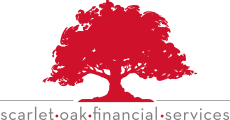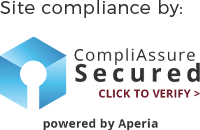A taxable brokerage account is an investment account used to trade assets such as stocks, bonds, mutual funds, etc.[1] When it comes to investing, a taxable brokerage account can be a great option to consider. These accounts have no restrictions on income phaseout limits, annual contribution limits, and withdrawal rules. However, no tax benefits are associated with these accounts, and there are more taxes to consider than retirement investment accounts.[2] Historically, the stock market has provided around 10% annual returns. It’s important to note that when the effects of inflation are subtracted, the actual returns are closer to 6% or 7%.[3] Investments like stocks, bonds, and mutual funds will most likely outpace traditional and even high-yield savings accounts in due time.[4] As you take the following steps to build wealth, it might be time to get a Taxable Brokerage Account, sometimes called a Brokerage Account or a Non-Qualified Individual Account.[5] An individual can own this type of account – an individual taxable brokerage account or a group- a joint taxable brokerage account.
Strengths:
- It has a large variety of investment options. If it is offered, you can invest in it. [6]
- Eligibility to start one only requires that you be 18 years old.2
- No limits on the amount you can contribute.2
- It is relatively liquid. Selling an investment might take some time, but turning your assets into cash is relatively easy. [7]
- There are no Required Minimum Distributions (RDMs). Unlike retirement accounts like 401ks and IRAs, you don’t need to pull any money from this account, no matter your age.4
- There are no rules on withdrawals by heirs. There are rules on inherited retirement accounts for the recipient to empty the account within ten years, sometimes creating tax burdens for that heir.4
- There is a possibility that your gains will outperform traditional savings accounts and high-yield savings accounts.1
- There can be low fees, but you must research because costs vary from institution to institution and advisor to advisor.
Tradeoffs
- This is an investment account, and there is a possibility that you will lose part, or all of the money contributed. Therefore, most financial advisors and experts don’t recommend you put your emergency fund in an investment account but in an FDIC-insured savings account. 1
- These accounts are called taxable for a reason. With a Taxable Brokerage Account, there is no tax sheltering or tax-free growth offered by retirement accounts.4
Dividend income will be taxed either as an Ordinary Dividend with an ordinary income tax rate or as a Qualified Dividend at the lower capital gains rate. You would receive a 1099-DIV from your institution with this income listed at the beginning of the year. Interest Income can be earned in these types of accounts, which are taxed at the ordinary income tax rates. You would also receive a 1099-INT form from your institution at the beginning of the year for interest income. [14],[15]
- As with all investments, the pragmatic way is with a long-term approach that has your risk tolerance and a diversification strategy at the forefront. People can get in trouble with these accounts when they try to time the market, don’t spend time researching an investment, and make trendy choices based on impulse.1
If you feel like a taxable brokerage account might add to your overall financial growth and goals, they are a great way to increase your investment portfolio. Remember, with all investments, time, contributions, return on investment, and fees/taxes are essential to understand before opening an account. If you want to explore investment accounts that would work for your personal goals, Scarlet Oak Financial Services can be reached at 800.871.1219, or you can contact us here. To sign up for our weekly newsletter with the latest economic news, click here.
Sources:
[1] https://www.nerdwallet.com/article/investing/what-is-how-to-open-brokerage-account
[2] https://www.investopedia.com/articles/stocks/11/intro-tax-efficient-investing.asp#:~:text=an%20investment%20strategy.-,Taxable%20Accounts,and%20401(k)s.
[3] https://www.sec.gov/investor/pubs/sec-guide-to-savings-and-investing.pdf (page 14)
[4] https://www.investor.gov/sites/investorgov/files/2019-02/Saving-and-Investing.pdf
[5] https://www.nerdwallet.com/article/investing/types-investment-accounts-know
[6] https://www.personalfinanceclub.com/the-pros-and-cons-of-a-brokerage-account/
[7] https://www.forbes.com/advisor/investing/taxable-investment-accounts/
[8] https://www.forbes.com/advisor/investing/liquidity-and-liquid-assets/
[9] https://lyonswealth.com/blog-details/which-investments-has-the-least-liquidity#:~:text=At%20the%20other%20end%20of,or%20restrictions%20on%20its%20trade.
[10] https://www.investopedia.com/articles/basics/04/022704.asp
[11] https://www.investopedia.com/articles/active-trading/022315/how-brokerage-fees-work.asp#:~:text=Brokerage%20fees%20are%20any%20commissions,of%20services%20like%20investment%20research.
[12] https://www.kiplinger.com/taxes/capital-gains-tax/603735/2022-capital-gains-tax-rate-thresholds
[13] https://turbotax.intuit.com/tax-tips/investments-and-taxes/guide-to-short-term-vs-long-term-capital-gains-taxes-brokerage-accounts-etc/L7KCu9etn
[14] https://www.schwab.com/taxes/investment-related-taxes
[15] https://www.fool.com/the-ascent/buying-stocks/taxes-on-brokerage-account/
This material has been prepared for informational purposes. The information in this material is not intended as tax advice. Please consult a tax professional for specific information regarding your individual situation.

![Understanding Taxable Brokerage Accounts [2024]](https://scarletoakfs.com/wp-content/uploads/2023/02/Understanding-Taxable-Brokerage-Accounts-scaled.jpg)

